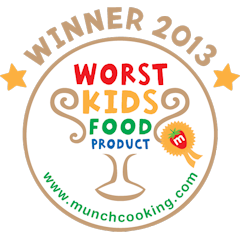Over the weekend another couple of nails have been hammered into the coffin for soft drinks as they look set to become the heir apparent to cigarettes.
First up, Coca Cola was voted the Worst Kids Food Product by Kiwi parents, narrowly pipping its higher caffeine cousins V and Red Bull (amongst other contenders). Second, the British Medical Journal called for a 20% tax on soft drinks as one way to stem the obesity epidemic – the same tax rate we concluded was necessary from the research we did in “Appetite for Destruction”.. But perhaps the most surprising aspect of the weekend was the banal reaction of our Health Minister.
It is little wonder that soft drinks are attracting attention, we have already written at length about the problems the cause. In short, they represent all that is wrong with modern foods: they are energy dense and contain no useful nutrients. Our bodies don’t even recognise that we are taking in energy, so despite all the sugar they don’t contribute satisfying our appetite. This makes it far easier to overeat and pile on the weight. Of course food manufacturers trot out the old adage that there is no bad food, just a bad diet, but in the case of soft drinks they are clearly wrong. They are the ultimate junk food and serve no nutritional purpose. The amazing thing is that our body can tolerate quite a lot of it before it shows visible signs of strain.
With all this attention, a soft drink tax looks set to become an election issue. At a recent Heart Foundation event both the Greens and Labour health spokespersons reported they were exploring the idea. Given their success with cigarette taxation, the Maori Party can’t be far behind. However, the response from National’s Tony Ryall was categorical: “Such a tax would add to the burden of many families in tight economic times”. This is simplistic, knee jerk response and from a so-called Minister of Health is just ignorant.
Any new tax which increases prices (such as GST, which National increased) will initially have a regressive impact – in other words it will have a bigger impact on the poor more simply because they spend a greater portion of their income. However, there are many reasons to think that the knock on impacts will more than outweigh this effect.
We know that poorer households are more likely to adjust their consumption in response to price changes than other households. They will simply switch their drink consumption to milk, or maybe even water. Therefore poorer households will pay less of the tax, and will also get a disproportionate amount of the health benefits from changing their behaviour. Given that obesity and related health problems is more prevalent in poorer households, this means that the health impacts of the tax will be decidedly progressive – which is the whole idea!
Of course some households will not change their behaviour and will end up paying more. But even that isn’t so bad – these people are making a direct contribution to the health costs they will create later in life. It is not like we are talking about a necessity. This is a nutritionally pointless and health-damaging product that needs to be stamped out if we are to stop the oncoming tide of obesity and diseases like diabetes that come with it.
Finally, how much the poor are affected by this change depends totally on how the money raised by the tax is spent. If the income is spent on a policy that helps the poor – such as a subsidised fruit and veges or cooking classes in poor communities – then the overall impact will be even more progressive.
In our view there is no difference between this issue and smoking. If smokers are poor then increasing the tax on cigarettes on the poor will add to their burden also. The Health Minister doesn’t have any problem with this, presumably because he’s familiar with the evidence: the poor are more likely to give up smoking if the tax goes up. The Minister of health needs to bone up on soft drinks and health effects.

